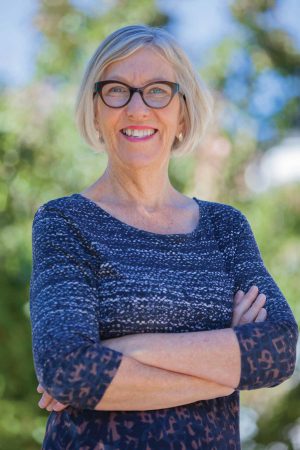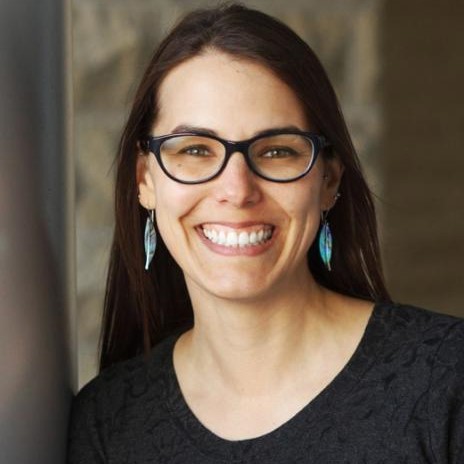
President Charlotte Yates today unveiled a detailed action plan for addressing racism, hatred and discrimination at the University of Guelph, including a new presidential advisory committee and initiatives to promote equity, diversity and inclusivity.
The action plan includes and builds on recommendations made by students, faculty, staff and community members who have advocated for change, especially in recent months.
“Their hard work and calls for action were the impetus for our action plan,” Yates said. “The goal is to build on their efforts and bring together U of G’s Black, Indigenous and people of colour (BIPOC) communities to advise and guide us in advancing real change on our campuses and beyond.”
Working collaboratively, the President’s Advisory Committee on Anti-Racism will develop a policy to address racism on campus and promote anti-racism efforts. This includes identifying and addressing systemic barriers to full and equal participation on U of G campuses and in the University’s policies, procedures and practices.

“U of G has a long-standing commitment to equity, diversity and inclusion on our campuses, but we have not done enough,” Yates said.
“We know that we have fallen short, that gaps remain and injustices have occurred affecting members of our Black campus community and other equity-seeking groups. We need to do more, and we need to do better – now.”
Referencing the rise and increased visibility of anti-Black and anti-Indigenous racism in Canada and around the world, Yates added: “The University of Guelph, like other public institutions, has an obligation to pay attention to historical and ongoing injustice and racism, both on our campus and beyond. We must address it and play an active role in creating a more just and equitable society.”
The President’s Advisory Committee on Anti-Racism will advise the senior leadership team about how to address racism and discrimination in the University community.
Recognizing that racism occurs as both micro-aggressions and overt and systemic discrimination, the committee will provide suggestions about how to adjust, improve and implement the anti-racism action plan. To maximize the likelihood of achieving real and lasting change, said Yates, the University recognizes that it needs the advice and guidance of Black, Indigenous and people of colour.

The committee will comprise students, staff, faculty and community members, with at least 70 per cent representation from the BIPOC communities. Nominations for the committee will open in the fall. The committee will be co-chaired by Yates and Prof. Lawrence Hill, a renowned author, advocate of racial equality, and an analyst of racial identity and discrimination.
“We have an obligation to act, and to do so as quickly as possible,” said Hill. “There is so much work to be done — at U of G, in Canada, around the world – to help end the cycle of racial injustice.
“Universities need to be open and honest about the need to understand where we are, what our failings are and how to create a more just campus community that offers all people the opportunity to belong and to thrive.”
As a working document, the action plan will be updated through consultations with the advisory committee and the U of G community. The plan was also informed by numerous reports and dialogues and was developed in partnership with U of G’s Office of Diversity and Human Rights.
“Working together, we aim to build a campus community where every member belongs, and is able to learn, live and work in an environment free of racism and discrimination,” said Indira Naidoo-Harris, AVP (diversity and human rights).

“It’s time to take the lessons we’ve learned from recent events and use them to bring about action and positive change in our community.”
The University has engaged in communications with the Black Students Association and with other members of the BIPOC communities and is committed to making solid changes to its processes and practices, she said.
The plan will also support and build upon successful Indigenous measures and actions that have been led by Cara Wehkamp, recently appointed as special adviser to the president on Indigenous initiatives, a reporting change that aligns with the emphasis the University is placing on its anti-racism work.
Initiatives led by Wehkamp have improved Indigenous student support, pedagogy and curriculum, research and scholarship, governance and campus environment, and will serve as a model for anti-racism and campus change.
Highlights of the anti-racism action plan include:
- Develop a BIPOC hiring plan that addresses gaps in representation among staff and faculty;
- Develop a targeted recruitment strategy and set goals and incentives to recruit BIPOC students;
- Create scholarships for BIPOC students;
- Roll out the $200,000 Inclusion Enhancement Fund for initiatives to create equity and inclusion on campus;
- Develop and distribute self-identification surveys to clearly portray the racial diversity of students, faculty and staff;
- Provide anti-racism and anti-bias training for senior University leaders;
- Develop a Black studies minor;
- Continue the new anti-oppression and anti-racism online training module for students, faculty and staff and the new for-credit undergraduate course on anti-discrimination and anti-oppression; and
- Continue initiatives to foster an improved campus environment.